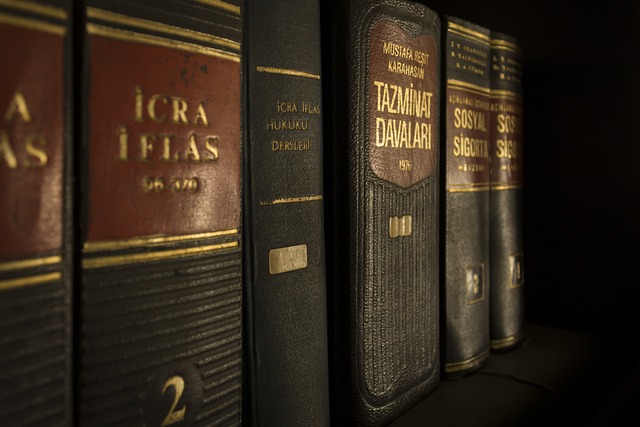Probate services, led by a specialized probate lawyer, streamline complex estate administration and settlement. These professionals assist with will validation, executor guidance, and probate court navigation. They ensure compliance, manage documentation, and facilitate efficient asset distribution while addressing tax implications. A probate lawyer's expertise simplifies the intricate process for families, offering tailored support from initial filing to final settlement.
“Unraveling the complexities of probate is essential for a seamless transition during estate administration. This comprehensive guide offers an in-depth look at probate services, highlighting the pivotal role a probate lawyer plays in managing this process. From initiating probate court assistance to settling estates efficiently, we explore each step.
Learn about executor duties, master estate distribution, and gain valuable insights into validating wills. Our article equips you with the knowledge to navigate probate proceedings confidently, ensuring peace of mind during what can be a challenging time.”
- Understanding Probate Services: A Comprehensive Overview
- The Role of a Probate Lawyer in Estate Administration
- Managing Probate Proceedings: From Start to Settlement
- Your Guide to Estate Distribution and Executor Duties
Understanding Probate Services: A Comprehensive Overview

Probate services encompass a range of legal support designed to navigate complex procedures related to estate administration and settlement. This process involves managing the distribution of a deceased individual’s assets according to their will or, in the absence of a valid will, state laws dictate. A probate lawyer plays a pivotal role in guiding clients through these intricate matters, ensuring compliance with legal requirements set by the probate court.
The scope of probate services includes assisting with executor duties, validating wills, and facilitating efficient estate settlement. Executors, often appointed in a will, are responsible for managing the deceased’s assets, paying debts, and distributing remaining property as outlined in the will. A probate attorney provides crucial assistance throughout these probate proceedings, offering expert guidance on legal aspects, tax implications, and ensuring the proper documentation is filed with the court to facilitate a smooth estate distribution process.
The Role of a Probate Lawyer in Estate Administration

When navigating complex estate administration processes, a probate lawyer plays an indispensable role in ensuring smooth and efficient management of probate services. They provide crucial probate court assistance to guide individuals through the intricate legal framework surrounding estate settlement. A skilled probate attorney can help validate wills, ensuring their validity and authenticity, which is paramount in determining the distribution of assets as per the testator’s wishes.
In addition to will validation, a probate lawyer assists in managing probate proceedings by facilitating communication between various parties involved, including the estate executor. They help the executor understand and fulfill their duties, ensuring compliance with legal requirements. This legal help is vital for resolving any disputes that may arise during estate distribution, offering professional guidance tailored to each client’s unique situation.
Managing Probate Proceedings: From Start to Settlement

Managing probate proceedings can be a complex and intricate process, but with comprehensive probate legal services, it becomes manageable. A dedicated probate lawyer ensures that every step is taken correctly from the initial filing to the final settlement. They provide expert assistance in navigating the probate court, validating wills, and ensuring that all documents are in order. This includes managing executor duties, which can be burdensome, especially for those unfamiliar with the role.
The estate administration process involves distributing assets according to the will or state laws. A probate attorney guides clients through this delicate stage, offering probate legal help tailored to their specific needs. They facilitate the collection and appraisal of assets, pay any outstanding debts and taxes, and ensure a fair and timely distribution of the estate. This comprehensive approach simplifies what could be a challenging period for families, allowing them to focus on healing and closure.
Your Guide to Estate Distribution and Executor Duties

When navigating the complex world of estate administration and probate services, understanding your role as an executor is paramount. An executor, designated in a will, is responsible for managing the estate of a deceased individual, ensuring that debts are paid, assets are accounted for, and the remaining property is distributed according to the testator’s wishes. This intricate process involves many critical tasks, from validating the will’s authenticity through probate court assistance to gathering financial records and managing various legal proceedings.
A probate lawyer provides invaluable probate legal help throughout this journey, guiding you in every step of estate settlement. They assist in managing probate, ensuring compliance with local laws and regulations, and facilitating communication between all parties involved. Their expertise includes navigating the nuances of estate distribution, executing tax strategies to minimize liabilities, and handling any challenges that may arise during probate proceedings.
Comprehensive probate legal services are invaluable for navigating the complex landscape of estate administration. By leveraging the expertise of a probate lawyer, individuals can ensure smooth management of probate proceedings from start to settlement. These professionals offer crucial assistance in validating wills, distributing estates, and fulfilling executor duties, ultimately providing peace of mind during an emotional time. Whether you’re seeking guidance through probate court or require legal help to validate a will, a qualified probate attorney is essential for a successful estate settlement.
